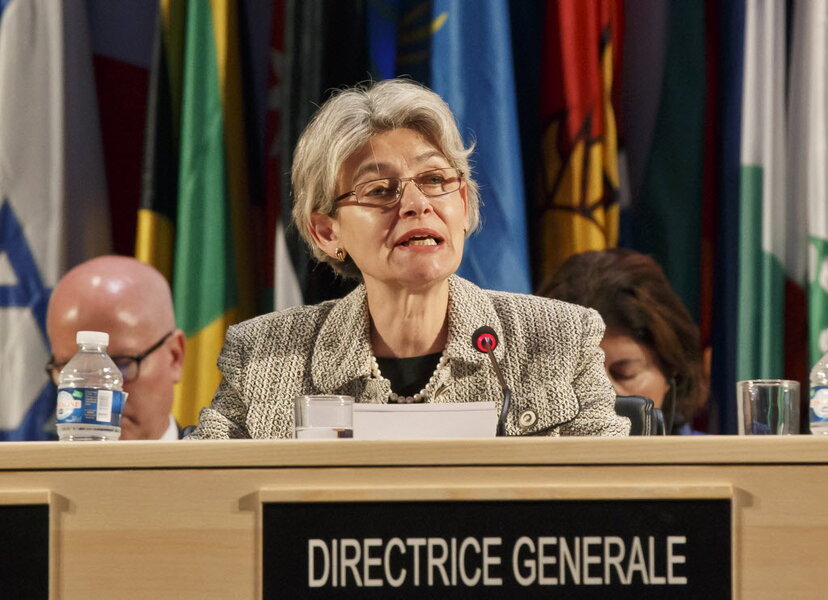What a woman might do as world’s chief diplomat
If any managerial position needs feminine-like skills, it is the secretary-general of the United Nations. Simply dealing with the five permanent member states of the Security Council requires patience, intuition, and the ability to bridge differences and prevent extremism. Yet since the UN’s founding, only men have held this position (eight in all). Now as the selection process begins to replace incumbent Ban Ki-moon, women are finally being considered as serious candidates for leader of the world’s most eminent global institution.
At least four of the current eight candidates are women, all of them with high credentials in their countries or at the UN, or both. Yet gender alone is not what marks this year’s selection of the UN’s chief diplomat. For the first time, the process itself reflects an emphasis on unifying values. This is a contrast from the traditional power play between Russia and the West in the Council’s decision.
The first value is inclusion, reflected in a request by the 193-member General Assembly that the Council consider gender when it proposes the next secretary-general in the fall. (The General Assembly votes on the Council’s pick.) Until now, the leading consideration was the custom of rotating the top job between regions. When Mr. Ban was chosen a decade ago, for example, it was Asia’s turn. This time, the expectation is a person from Eastern Europe.
The second value is transparency. Past selections were largely done in secret among the permanent members (Russia, China, France, Britain, and the United States). Now the candidates are vying openly for the job, making pitches to the world body as if they were auditioning on a show called “UN Idol.” In coming months, other candidates may put their hat in the ring.
Values like openness and inclusion must gain more prominence at the UN for it to regain its influence and not be further marginalized in shaping humanity’s future. A major trend of the past quarter century has been change via bottom-up movements, such as pro-democracy protests, rather than top-down change by a governing elite. Another historic shift has been the addition of more women in resolving conflicts and the UN’s other peacemaking roles. That trend is reflected in the fact that the number of women ambassadors at the UN has risen from about seven to about 37 over the past two decades. In the UN bureaucracy, about 20 percent of high-level positions are held by women, up from about 4 percent in the 1990s.
A female secretary-general is no guarantee of the UN making big reforms. At the least, however, it symbolizes changes in global society and provides inspiration for other women. Most of all, it is a reminder of the special values needed to draw humanity together.






